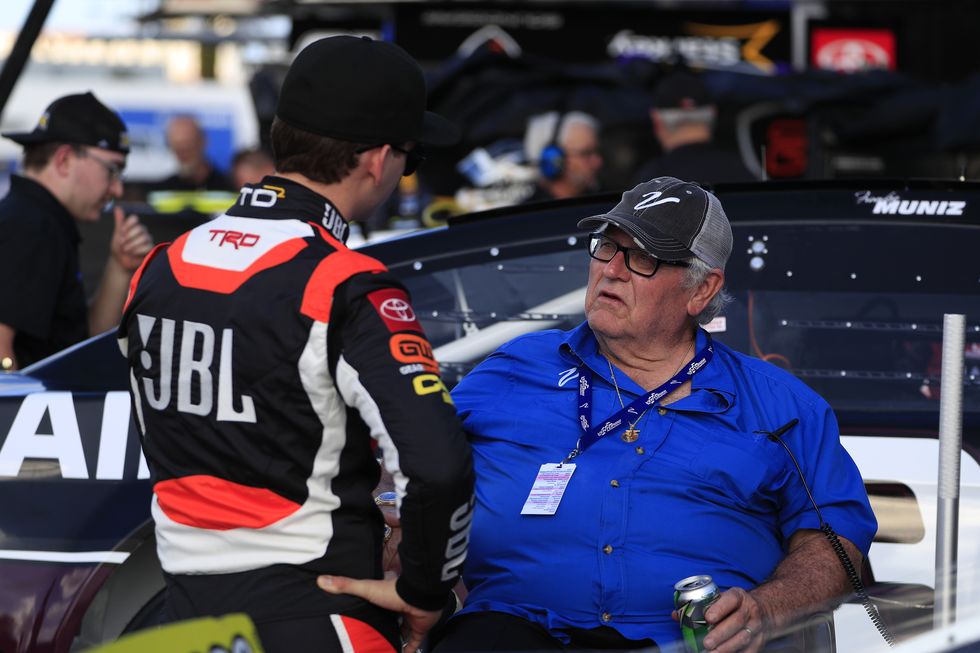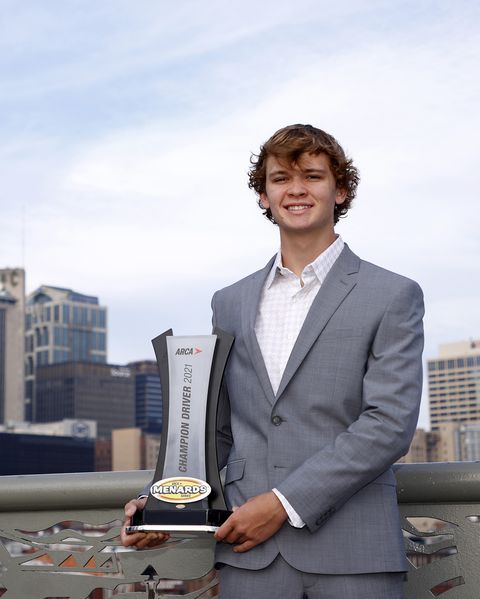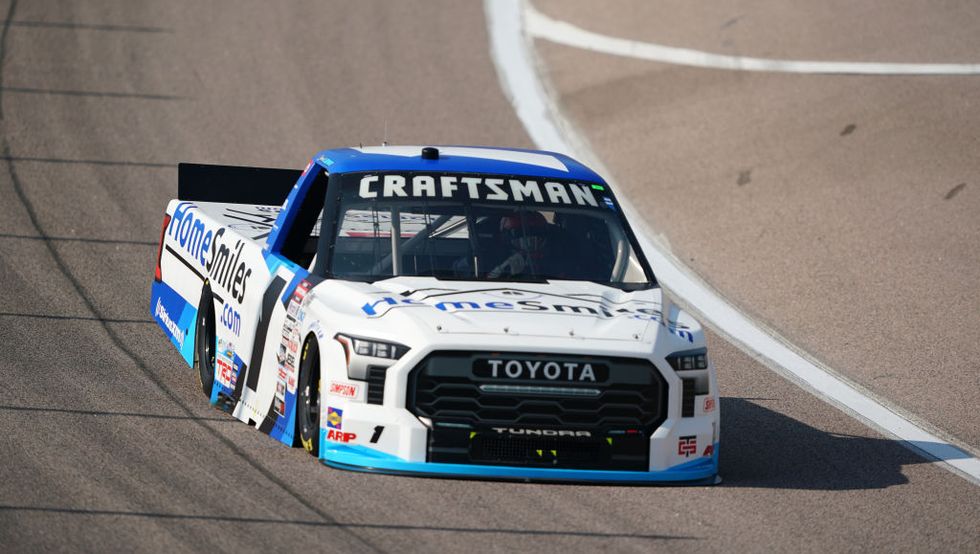Jesse Love is no stranger to historical moments.
When Toyota Racing Development inked the California native’s name on a contract at age 15, Love was at that time the youngest driver TRD had ever signed.
A short time later, driving for Bill McAnally Racing, he became the youngest driver to win a NASCAR-sanctioned event and an ARCA Menards Series West race, both at 15 years 5 months 13 days. That same year he became the youngest driver to claim a NASCAR-sanctioned championship when he earned the ARCA Menards Series West title at age 15 years 9 months 24 days.
This year, Love notches his name in the record books as the ARCA Menards Series youngest ever champion at 18 years 8 months 24 days—yes, he’s already clinched the title. That displaces Christian Eckes, whose championship in that series came at 18 years 11 months 8 days.
Throughout this year’s 20-race season no one has come close to the Venturini Motorsports driver in the victory department. He won half of the first 18 races, producing three- and four-race victory streaks. It’s a season that doesn’t surprise team co-owner Billy Venturini, because “you could see … the storm rolling in.”
Long before Love arrived on Venturini’s doorstep he was setting records on the West Coast. He stepped into a quarter-midget at age five, won his first race and never looked back. He won multiple championships before age 10 and was granted age exemptions by three different series before he was 15. In 2017, he became the only driver to earn USAC championships in three different divisions in the same year.
When Love walked into the Venturini shop in Concord, North Carolina, he was 15 years old with a lot of growth ahead of him as a person and a race car driver. During the next three years Love matured because Venturini said he had faith in the process, the program and he listened well.
“He has changed the most of any race car driver I have ever worked with, both on and off the track,” Venturini says.
When Venturini began working with Love, whom he described as “super-talented”, the teenager was “a little too analytical.”
“We had to really get him to remember how he drove when he was six (years old), when he was 10 when he was (destroying) everyone on the race track,” Venturini says. “I think his fear of failure, because it meant so much to him, was almost crippling at one point.”
Venturini, a former driver, notes that race car drivers have “gigantic egos with no self-confidence.”
“People don’t understand that,” Venturini continued. “Every race car driver knows what that means until they finally make it and then they’re just all self-confidence.”
Love’s maturity level exceeds his age, a characteristic he attributes to spending most of his life around adults. He handles interviews with ease, but never hides his emotions.
“I had to grow up at a really young age, which I don’t regret,” Love says.
“When I was 12 years old, (my dad and I) would do research and write down 15 most frequently asked questions in an interview. I’d answer all of them.”
Also, every Wednesday night for about two hours he and his father would work on the proper way for him to speak.
“I had a stutter growing up, a speech impediment,” Love says. “I still have it a little bit, stuttering over my words, not being able to say my ‘Rs’ that great. I had a lot of insecurity with that growing up and we worked really hard on that. Then when I was 13, 14 years old I sounded like a robot. We then threw the 15-question paper aside and focused on … being genuine.”
On the racing side, Love’s father, who raced midgets in his youth, mapped out a diverse career path for his son that included road courses, midgets, dirt, Legends cars and late models. He achieved success against drivers older than him and that caught Toyota’s attention. After studying Love’s statistics and watching him race, Toyota tested him with people older than him and Love performed well.
“He had good race craft for someone that young,” says TRD General Manager Tyler Gibbs.
McAnally noted Love’s communication skills and his knowledge of what his race car needed throughout an event surprised him.
Even though Love has driven excellent equipment this year, Venturini and Gibbs have still been able to gauge his progress. Venturini compares him to other drivers in his organization while Gibbs uses another tool.
“We’ve all seen a number of drivers who have the very best equipment, have everything that money can buy, and they are still not capable of outperforming the field significantly,” Gibbs says. “We expected that he would be very, very competitive and be winning races, so from that perspective, he’s doing what we would expect him to do.”
Venturini cites Love’s restart ability as the best he’s ever seen at the ARCA level.
“He knows how to have the momentum where he needs to have the momentum and if he’s running second, let the leader beat him to the line,” Venturini says. “It’s so impressive.”
Love still has a weakness in his racing and Venturini says it’s not delivering a “knockout punch” in the middle of a race.
“He has a tendency to keep the other guys alive more than he needs to,” Venturini says. “It kind of gives them (second place) hope and the last thing you need the second-place car to do is have hope. He needs to learn how to drive away, knock them out and crush their dreams.”
Love’s biggest improvement this year has been on the intermediate tracks, and he believes his dirt background has helped him adapt.
“The crazy stuff I do in a dirt car all the time feels like nothing on the pavement track,” Love says. “The dirt stuff keeps me sharp.”
Love won’t compete for a series championship in 2024. Instead, he will race in selected NASCAR Craftsman Truck and ARCA events, which will allow Toyota to watch him develop race-by-race.
“Sometimes the kids or their parents want to go too fast,” Gibbs says. “It’s about winning where you are competing now, don’t look forward, focus on what you’re doing right now and then we’ll work on the next step.”
There are times that Love feels his career is progressing too slowly, but he has learned there’s no set path in racing.
“Obviously, there’s a lot of different hurdles, optics, obstacles, politics, and different rides opening up,” Love says. “When I get worked up, I just remind myself to go do my job and everything will take care of itself.”
Read the full article here





